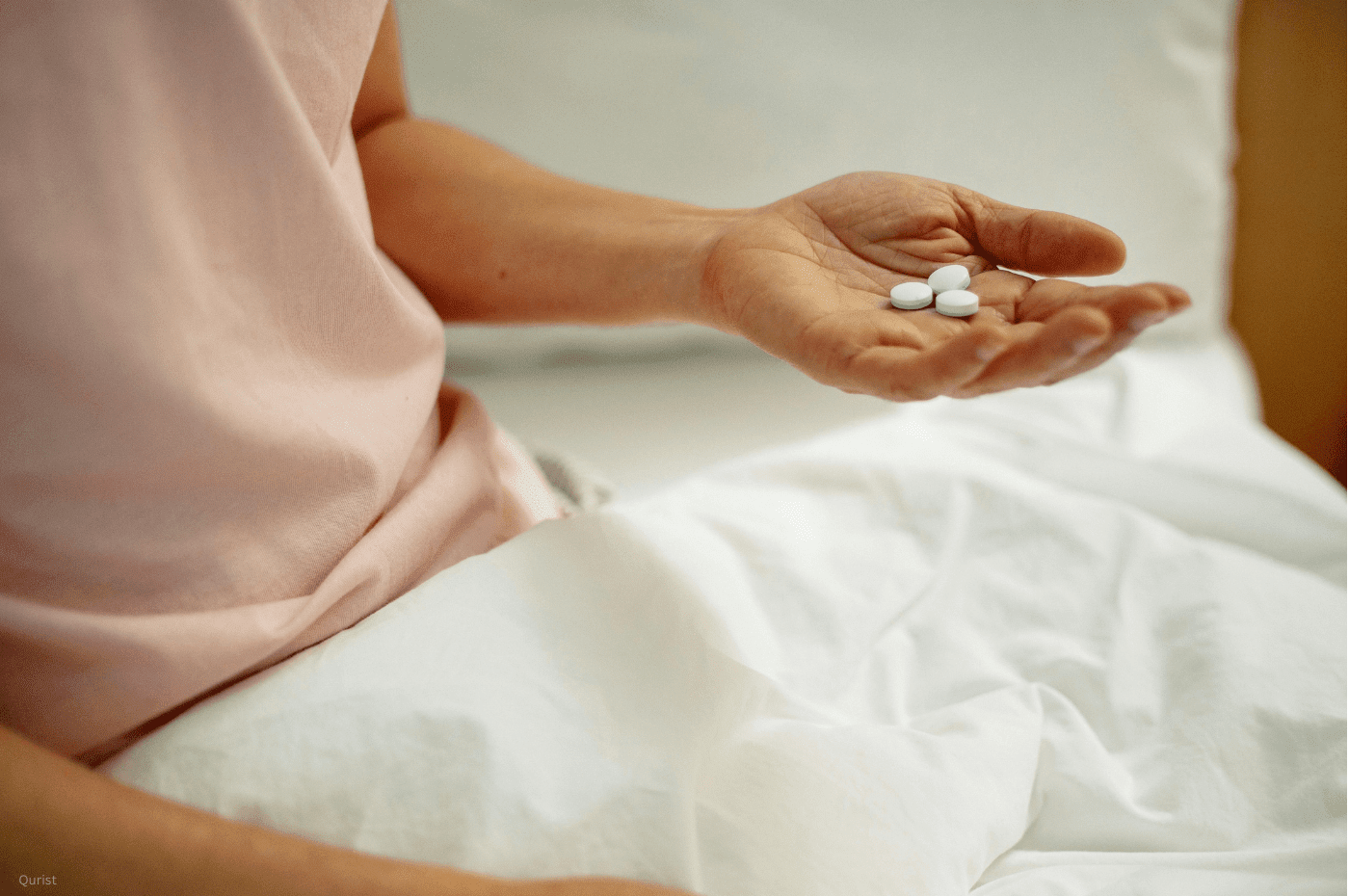Narcolepsy is a chronic neurological condition that affects the brain’s ability to regulate sleep-wake cycles. Though relatively rare in India, the disorder remains deeply underdiagnosed and misunderstood. As patients and caregivers seek more holistic approaches to managing their impact, cannabis-derived compounds such as CBD and THC are being increasingly explored as complementary wellness tools.
What is Narcolepsy?
Narcolepsy is a lifelong disorder of the central nervous system. It affects the brain’s ability to control sleep cycles and results in symptoms like:
- Excessive Daytime Sleepiness (EDS): Irresistible drowsiness and sleep episodes during the day
- Cataplexy: Sudden loss of muscle tone triggered by emotions (common in narcolepsy type 1)
- Sleep Paralysis: Temporary inability to move or speak while falling asleep or waking
- Hallucinations: Vivid dream-like experiences during wake-sleep transitions
- Fragmented Nighttime Sleep: Difficulty maintaining deep, restorative sleep
Although the causes are not fully understood, narcolepsy has been linked to loss of hypocretin-producing neurons (a neurotransmitter involved in wakefulness).
Conventional Management of Narcolepsy
In India, treatment for narcolepsy generally includes:
- Stimulants or Wake-Promoting Agents (e.g., modafinil)
- Antidepressants for cataplexy and REM-related symptoms
- Scheduled naps and sleep hygiene routines
- Cognitive behavioural therapy (CBT)
While effective to a degree, conventional therapies do not work for all individuals and may involve side effects such as insomnia, anxiety, or dependency.
This is where some patients begin exploring non-pharmaceutical wellness tools, including CBD-based alternatives, as part of an integrated approach.
The Role of the Endocannabinoid System in Sleep
Regulation
The endocannabinoid system (ECS) plays a major role in regulating many physiological processes, including sleep, appetite, pain, and mood. ECS activity influences circadian rhythm, REM sleep, and neurotransmitter signalling.
Cannabis compounds such as CBD and THC interact with the ECS through receptors (CB1 and CB2), potentially supporting better homeostasis in individuals with disrupted sleep cycles.
How CBD is Being Explored for Narcolepsy
Support
CBD is a non-psychoactive cannabinoid increasingly used to support overall wellness. Although clinical trials specific to narcolepsy are limited, early studies suggest CBD may support the following areas:
-
Sleep Cycle Stabilization
While CBD does not act as a sedative, it may help regulate the body's sleep-wake balance by reducing cortisol levels and influencing the sleep architecture. This could support more consolidated nighttime sleep, reducing fragmented rest. -
Reduction in Daytime Sleepiness
CBD may indirectly promote daytime alertness by improving overall sleep quality and reducing inflammation, which is associated with sleep disruption. -
Support for Anxiety & Emotional Balance
Since narcolepsy can lead to anxiety, depression, or social withdrawal, CBD’s anxiolytic properties are being explored as a wellness tool to promote calmness and emotional resilience. -
Muscle Relaxation Without Sedation
CBD may offer support for managing cataplexy-related muscle tone loss, though this area needs further research. Its influence on neuromuscular relaxation without strong sedative effects makes it an interesting topic for future study.
Understanding THC in Context
THC is the psychoactive compound in cannabis and has shown more potent effects in sleep initiation and REM modulation. However, it is not suitable for all individuals, especially in unmanaged or high doses.
In the Indian context, products like those offered by Qurist maintain precise, traceable formulations that balance THC with CBD in specific ratios for wellness purposes, not intoxication.
Consumer Considerations Before Exploring
Cannabis-Based Products
-
Consult Your Doctor First
Especially if you are already on medications for narcolepsy or mental health, always discuss any wellness product introduction with a qualified medical expert. -
Start with a Low Dose
CBD products should always be introduced gradually, monitoring effects over time. -
Choose Lab-Tested Products Only
Look for brands offering COAs (Certificate of Analysis) that ensure no pesticides, heavy metals, or unsafe THC concentrations. -
Be Realistic
CBD is not a miracle solution. It’s a gentle wellness aid that some people find beneficial as part of an integrative plan.
The Qurist Approach
As a homegrown Indian wellness brand, Qurist focuses on delivering clean, research-backed, cannabinoid-based products manufactured in India. The company collaborates with scientists and labs to ensure:
- Controlled formulations of CBD and THC
- Batch-level transparency
- Safe and ethical ingredient sourcing
- Accessibility for Indian consumers seeking natural wellness support
Narcolepsy requires lifelong care, customized solutions, and compassionate understanding. While medications play a central role in symptom management, the evolving interest in cannabis-derived compounds like CBD and THC is giving patients new avenues to explore lifestyle and wellness support.
India’s wellness space is gradually making room for responsible, regulated cannabinoid-based products that reflect both scientific promise and cultural sensitivities. For individuals seeking a holistic, balanced approach to narcolepsy support, brands like Qurist are opening the door to CBD-driven wellness strategies rooted in transparency, safety, and education.
Disclaimer: This article is for educational purposes only. CBD and THC are not treatments or cures for narcolepsy. Always consult a healthcare professional before adding any supplement to your regimen, especially when managing a chronic neurological condition.





Leave a comment
This site is protected by hCaptcha and the hCaptcha Privacy Policy and Terms of Service apply.